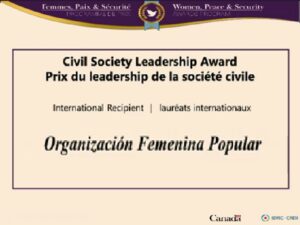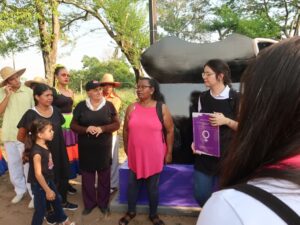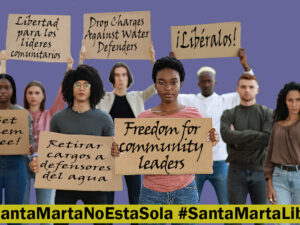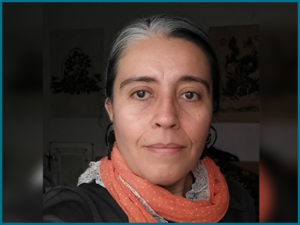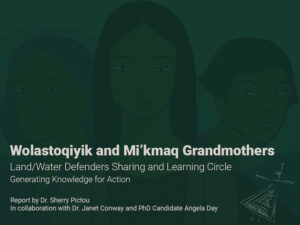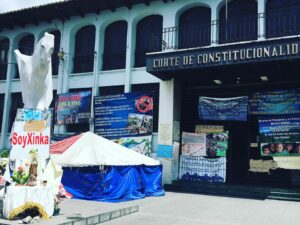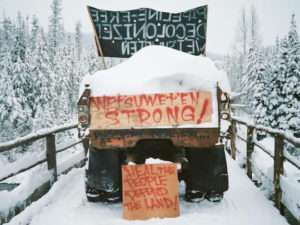Canadian organizations ask government to publicly condemn violence against Indigenous land defenders in Guatemala
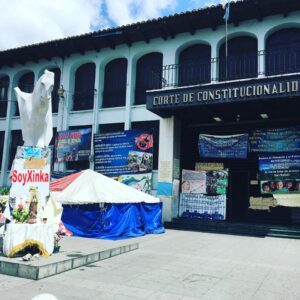
On March 30th, 2021, MiningWatch Canada, along with 26 other Canadian organizations, sent a letter to Marc Garneau, Minister of Foreign Affairs, and Mary Ng, Minister of Small Business, Export Promotion and International Trade, asking them to make a formal public statement condemning the violence against land defenders who have been peacefully resisting the Escobal mine in Guatemala, owned by Vancouver-based Pan American Silver (PAS).
We are also calling on the Canadian government to inform and raise concerns to PAS in response to attacks against the ongoing peaceful resistance, to work to bring attention to and condemn these most recent attacks in the Grupo Filtro group of embassies in Guatemala, and to follow up with the Inter-American Commission on Human Rights (IACHR) to encourage that complaints submitted regarding these attacks in Guatemala be reviewed in a timely manner.
Similarly, we urge the Canadian government to give the Canadian Ombudsperson on Responsible Enterprise (CORE) the independence and powers it promised, and to urgently develop binding legislation to address the generalized state of impunity that Canadian corporations benefit from while operating abroad.
March 30, 2021
The Honourable Marc Garneau, Minister of Foreign Affairs, Government of Canada
The Honourable Mary Ng, Minister of Small Business, Export Promotion and International Trade, Government of Canada
Re: Threats and violence against land defenders at Canadian-owned mine in Guatemala
Dear Ministers Garneau and Ng,
The below-signed organizations are concerned about an escalation of threats and attacks against land defenders who have been peacefully resisting the Escobal mine in Guatemala, owned by Vancouver-based Pan American Silver (PAS), for many years. This violence could derail recent advances in a consultation process with the Indigenous Xinka people and takes place in a context of increasing co-optation and corruption of the Guatemalan judiciary. We call on the Canadian government to take immediate action, as outlined below.
The Escobal mine was imposed on residents using violence against peaceful protests and the application of martial law, as well as military-style surveillance and legal persecution targeting project opponents. This led to a groundbreaking lawsuit brought by Guatemalans against Tahoe Resources in British Columbia courts in 2014. Ongoing lack of respect for the peaceful opposition to the mine by the Indigenous Xinka people in the area led to its suspension in mid-2017, due first to peaceful encampments by the resistance movement to block mine-related traffic, and later when the courts ordered Guatemalan authorities to conduct a consultation process with the Xinka people.
Until recently, the consultation process had not advanced due to multiple procedural irregularities and the Guatemalan government’s exclusion of the Xinka from their own process. These recent attacks have occurred shortly after Guatemalan authorities finally agreed to accept Xinka representatives, and just as Xinka authorities prepare to make important decisions about how the consultation should take place. These attacks put the whole consultation process at risk. The Guatemalan Constitutional Court emphasized in its September 2018 decision that “a situation marked by confrontation, violence, and mistrust does not help to make the consultation truly productive.” To avoid further escalation of this already tense and dangerous situation, we are calling on Canadian authorities to respond with concerted action.
Specifics of recent threats & attacks
On the morning of Saturday, January 16, 2021, there was an assassination attempt against the life of Mr. Julio David González Arango. Mr. González is an active member of the Peaceful Resistance of Santa Rosa, Jalapa, and Jutiapa, which opposes the Escobal mine. Unknown men shot Mr. González at his home in the municipality of Mataquescuintla, Jalapa, where he also runs a small shop.
The following day, Mr. Juan Eduardo Donis and Mr. Pablo Adolfo Valenzuela Lima, two other members of the peaceful resistance to the mine from Mataquescuintla, received text messages threatening their lives. The threats included an explicit reference to the attack on Mr. González and indicated that Mr. Donis and Mr. Valenzuela would be next.
Then, on Saturday, February 6, Indigenous Xinka leader Luis Fernando García Monroy was threatened by a mine supporter near his home. In 2013, Mr. García was shot and injured in the aforementioned attack when mine security forces opened fire on a peaceful community demonstration outside the mine gates. He would later become a plaintiff in the historic García v. Tahoe Resources case in British Columbia. Mr. García also works for the Xinka Parliament, the legitimate authority of the Xinka People.
This attack on Mr. González and the grave threats against Mr. Donis, Mr. Valenzuela, and Mr. García occur in an increasingly tense and dangerous context for members of the peaceful resistance and the Xinka Parliament. Mr. González, Mr. Donis, and Mr. Valenzuela, as well as against Edwin Alexander Reynoso Bran and Xinka Parliament lawyer Quelvin Otoniel Jiménez Villalta, as well as others in the resistance, have received numerous threats leading up to this latest attack. The attacks were reported to the Public Prosecutor’s office, which to date has not acted on the complaints. It is important to note that Mr. Reynoso already suffered two assassination attempts in 2014 and 2015. During the first attack, Topacio Reynoso Pacheco, Mr. Reynoso’s 16-year-old daughter and herself a human rights defender, was assassinated.
Mr. Reynoso and Mr. Garcia are two of 59 representatives elected to participate in the court-ordered consultation with the Xinka people on the Escobal mine. Attorney Quelvin Jiménez has also suffered threats since the Constitutional Court decision. The Inter-American Commission on Human Rights granted him precautionary measures in July 2019.
Destabilizing factors & the role of Pan American Silver
Even though Pan American Silver is not currently extracting minerals at the Escobal mine, it continues to operate in Xinka communities, well beyond ‘care and maintenance activities. According to its own 2019 Sustainability Report, the company is “engaging with community leaders, government agencies, and NGOs.” In September 2020, the company announced the launch of a “participatory monitoring program” in the municipality where the mine is located. In response to a letter sent to Guatemalan authorities and signed by nearly 200 organizations expressing concern over the recent attacks and threats against defenders, Pan American Silver wrote that it continues “community relations activities to respect any existing commitments…”
While such community activities may seem innocuous to an outside observer, the Xinka Parliament and the resistance movement have decried the company’s community work as coercive, in violation of the “free” nature of the consultation and the Constitutional Court suspension order, and a main driver of increased tension and violence. In a joint statement by the Xinka Parliament and the Guatemalan Ministry of Energy and Mines in October 2020, the Ministry agreed to inform Pan American Silver that the Xinka consider the company’s activities to be acts of bad faith that threaten the integrity of the consultation. Nonetheless, Pan American Silver has so far failed to acknowledge or take action in response to Xinka demands that the company suspend all community relations activities so as to do its part to preserve their right to freely and safely participate in the consultation process.
Constitutional crisis and loss of judicial independence in Guatemala
Further to the situation at the local level, the generalized context of impunity in which these abuses take place is at risk of getting much worse. A powerful group known in the Guatemalan press and to critics as the “Pact of the Corrupt” (Pacto de Corruptos), made up of powerful business people as well as members of Congress and public officials, has been pushing schemes to undermine the impartiality of Guatemala’s Supreme Court of Justice, Appeals Court, and Constitutional Court.
This situation not only has serious implications for judicial independence in Guatemala at large, it also bodes poorly for the court-ordered consultations underway over mega-projects such as with the Xinka, for which the Supreme Court is the designated arbiter.
See this backgrounder for more information on why Pan American’s interference is of such grave concern.
In the context of escalating threats and violence, deepening corruption and impunity, and the fact that a Canadian mining company is once again at the centre of such a situation in Guatemala, we stand in solidarity with the peaceful resistance to the Escobal mine and urge Canadian officials to take immediate action.
We request that the Government of Canada take the following actions:
- In accordance with actions defined in the Voices at Risk Guidelines, release a formal public statement condemning the violence against the peaceful resistance to the Escobal mine. Use this statement, as well as diplomatic channels, to urge a full and impartial investigation by the Guatemalan National Civil Police and the Public Prosecutor’s Office into these threats and attacks.
- Inform and raise concerns to Pan American Silver in response to these attacks against the ongoing peaceful resistance against their Escobal mine and the risk that this poses to the ongoing consultation process, and echo the demands of the Xinka Parliament that Pan American Silver cease all community-relations work in Guatemala, which exacerbates local conflict and tension.
- As part of the Grupo Filtro group of embassies in Guatemala, work to bring attention to and condemn these most recent attacks.
- As a member of the Organization of American States, follow up with the Inter-American Commission on Human Rights to encourage that complaints submitted regarding these attacks in Guatemala be reviewed in a timely manner.
- Make the Canadian Ombudsperson for Responsible Enterprise (CORE) an independent entity, with the power to investigate claims of wrongdoing, that does not put communities or organizations at further risk.
- Urgently develop binding legislation to address the generalized state of impunity that Canadian corporations benefit from while operating abroad.
We would welcome the opportunity to meet with you and discuss this urgent matter. Please contact Viviana Herrera (viviana@miningwatch.ca) and Este Chep (btscooperant@gmail.com ) to arrange a meeting.
Yours sincerely, signed,
- Mining Injustice Solidarity Network (MISN)
- Mining Justice Action Committee
- Inter Pares
- KAIROS: Canadian Ecumenical Justice Initiatives
- Canadian Network on Corporate Accountability (CNCA)
- Committee for Human Rights in Latin America (CDHAL)
- Cooperation Canada
- The University of Ottawa, Interdisciplinary Research Group on Territories of Extractivism (GRITE)
- Maritimes-Guatemala Breaking the Silence Network (BTS)
- CoDevelopment Canada
- Solidarité Montérégie Amérique Centrale
- Kolektif Jistis Min (KJM)
- Projet Accompagnement Québec-Guatemala (PAQG)
- MiningWatch Canada
- Mining Justice Alliance (MJA)
- Canadian Lawyers for International Human Rights (CLAIHR)
- Oxfam
- BC CASA/Cafe Justicia Canada
- Mining Justice Action Committee (MJAC)
- CoDevelopment Canada
- Public Service of Alliance of Canada
- L’Association québécoise des organismes de coopération internationale (l’AQOCI)
- Centre international de solidarité ouvrière (CISO)
- Réseau québécois des groupes écologistes
- Rights Action
- Collectif Guatemala
- Students for Mining Justice
CC:
Ambassador Rita Rudaitis-Renaud, Embassy of Canada in Guatemala
Ambassador Hugh Adsett, Ambassador and Permanent Representative of Canada to the Organization of American States
Eric Bertram, Deputy Director of Democracy and Indigenous Affairs, Global Affairs Canada
Catherine Godin, Director General for Global Affairs Canada
Sylvia Cesaratto, Director General, Central America & Caribbean, Global Affairs Canada









